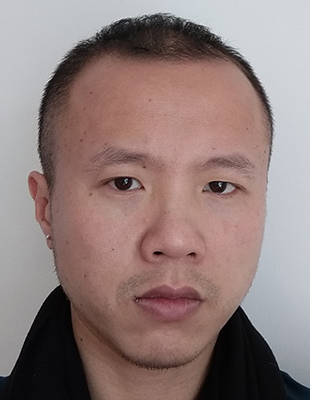Music in Society—Webinar 2
Friday 7 October, 2022 | 12.15-1.15 pm
Self-alienation in Sinophone music
Assistant Professor, Soochow University
leeshinkang@suda.edu.cn
Abstract
It is well recognised that people negotiate the complexities of colonisation and globalisation by constructing, negotiating, and hybridising different identities. What remains virtually foreign to music research is the extent to which positive identity flips over into its absence, which I term self-alienation. Departing from the obsession with fitting peoples into identities corresponding to territories on a world map, I argue that colonisation has left behind racial stereotypes and a regime of values that result in repulsion from ethnic identity. Chinese composers and listeners find themselves in the position of refuting their ethnic identity because of the association with slitty eyes, kungfu panda, or even just noodles. This paper is an expansion of the racial alienation long recognised in critical race theory from W. E. B. Dubois’s double consciousness to Franz Fanon’s epidermal-racial schema. I articulate how Sinophone music-makers, writers and listeners in Singapore and China direct their self-alienation creatively towards varied aims, all of which help them to craft slightly more habitable worlds. Whereas alienation normally carries negative connotations, self-alienation from racial stereotypes can constitute a means of self-protection and resistance. In other cases, embarrassed listeners respond to their self-alienation by dissimulation, explaining away their lack of appreciation for Chinese music by referring to Singapore’s multicultural national identity, which is enshrined in government policy, and by distancing themselves from mainland Chinese culture, emphasising they are Singaporean Chinese instead. Most commonly with self-alienation, listeners and writers either create a new colonial identity, or recover their Chinese identity, marking a distinct difference between Sinophone sites. In Singapore, a large range of music-makers and listeners accept their self-alienation, having constructed a new colonial identity known colloquially as “banana,” i.e. “white inside, yellow outside,” referring to someone who speaks primarily the English language, which is correlated with Western musical preference. In China, on the other hand, self-alienated listeners aim to recover their Chinese identity through Sinicising discourses. In the midst of all this are faint but distinct signs of a decolonial consciousness as seen in Ken Tay’s evoking of “fake prada” to criticise the attitude that “Western culture is our God.”
中新音乐中的民族身份异化
音乐学者以认同音乐听众经常在殖民与全球化环境下建造、协调、与融合不同身份。但音乐研究中没用注意到身份转换为异化的现象。这演讲脱离通常与地域定夺的身份概念,探究殖民留下的种族刻板印象如何导致人们排斥自己的民族身份。由于华人身份与斜眼、功夫熊猫、甚至于面条的联系,华人作曲家与听众可能身份异化。种族身份异化源于并扩展批判种族理论学者W. E. B. Dubois的“双重意识”与Franz Fanon的“肌肤-种族肢体意识”。我探讨华人音乐家、学者、与听众如何用身份异化制造一个更能够容纳有色人群的世界。虽然异化带有贬义,我说明它能够起到保护和反抗的作用。身份异化也可能让华人听众感觉不好义思, 所以他们的能有不同说法,如、新加坡听众可能提到当地的多元种族文化来解释自己为什么不听中国传统音乐,他们也可能强调自己是新加坡人,并非中国人。身份异化最常见于听众制造新殖民身份,或重返民族身份,而这两种反应体现中新两地的差异。许多新加坡华人听者以接受身份异化,制造新殖民“香蕉”身份(外在肌肤“黄”色,内在文化“白”色),指的是说英语、听西方音乐的人群。但在中国,身份异化的人们会制造新说法,把异化的音乐“中国化”。在这复杂的场景中,也可以觉察到一些除殖民的声音,用“冒牌普拉达”这名号批判“西方文化是上帝”这种崇洋的态度。

Biographies
 | Dr Gavin Lee is Assistant Professor of Music at Soochow University (China). His research on decolonial and queer theory, Sinophone musics and music epistemology, and global music history and global musical modernisms, appear in Journal of the Royal Musical Association, Current Musicology, Music Theory Spectrum, and Music Analysis. He is the author of Estrangement from Ethnicity: Music and Sinophone Alienation (forthcoming, University of Michigan Press) and has edited two books, Queer Ear: Remaking Music Theory (forthcoming, Oxford) and Rethinking Difference in Gender, Sexuality and Popular Music (Routledge). In recent years, Lee has presented guest lectures on three continents at universities in the US, Australia, and Taiwan. Aside from Sinophone topics, specifically on racial alienation in music, Lee’s decolonial research encompasses the critique of distortionary anti-racist stereotypes such as the “resistive ethnic other” in US-centric diversity frameworks (how likely is it that global others are resisting Western music in US undergraduate music curricula, rather than colonial histories of slavery and genocide?), as well as, more generally, a decolonial epistemology of music that departs from North American knowledge structures. Other projects include the concept and historiography of global musical modernisms, conceived as the expansion of the temporal, genre, and geographic boundaries of Western musical modernism; and a range of queer studies, including queer alienation, queer listening, and queer ambiguity. In conjunction with his research, Lee has headed several study groups dedicated to research on and advocacy for the marginalized: the AMS Global East Asian Music Research study group, SMT Global Interculturalism and Musical Peripheries interest group (both of which he co-founded), as well as the SMT Queer Resource Group and the SEM Gender and Sexualities Task Force. Lee has also served on the SMT LGBTQ+ standing committee and the AMS LGBTQ study group committee. |
 | Dr Mercedes Dujunco received her Ph.D. in ethnomusicology from the University of Washington and Bachelor of Music in Piano, magna cum laude, from the College of Music of the University of the Philippines. She was a Killam Postdoctoral Fellow at the University of Alberta before taking up positions as assistant professor of music at New York University, associate professor of music at Bard College in upstate New York, as well as visiting faculty positions at the Shanghai Conservatory of Music and at the Suzhou University of Science and Technology. Dr Dujunco’s main area of research focuses on the music traditions of the Chaozhou Chinese subculture in eastern Guangdong and of the Chaozhou diaspora in Southeast Asia. She has also written about the sizhu string-and-wind ensemble traditions of other regional subcultures in South China as well as on the musical labor of Filipino musicians overseas. Dr Dujunco is currently on a three-year GREF-funded research project with Prof May Bo Ching of the history department of the City University of Hong Kong to explore the “Cantonisation”/ adaptation of Western Instruments in the Cantonese opera ensemble. |
Recording
![]()
